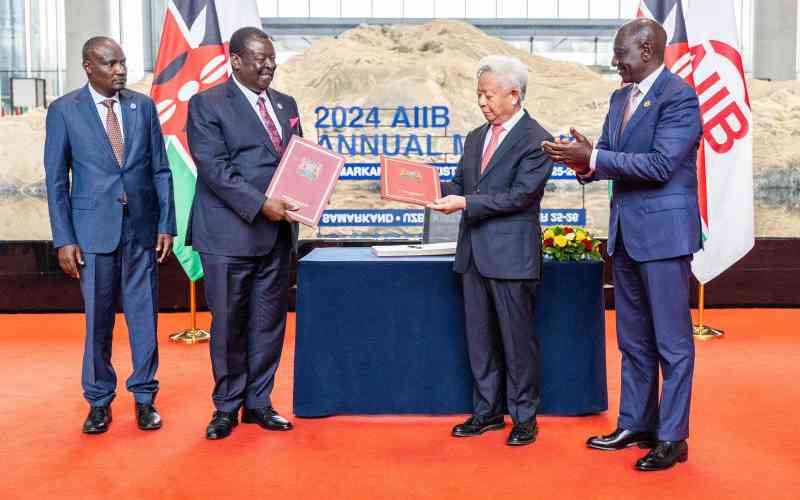
Climate advocates and activists have been rejecting loans including concessional loans for climate action in developing countries, particularly Africa.
This is because Africa is already burdened by rising debts and dependence on foreign financing. Activists always claim these loans come with conditionalities. According to ONE, the global advocacy and campaigning organisation focusing on ending extreme poverty and preventable disease, particularly in Africa, as of 2022, African countries owed US$655.6 billion to external creditors.
For example, the World Meteorological Organisation (WMO) reports that the annual cost of climate change in sub-Saharan Africa was estimated to be between US$30-50 billion, and this is projected to cost the region over the next decade.
In recent years, the continent attracted foreign investors in mitigation and adaptation projects with a higher percentage of allocated to mitigation projects. In the meantime, the committed financing of $100 billion was not met which pushed African countries to address climate mitigation and adaptation using foreign loans acquired from the foreign creditors from the north, particularly through bilateral, multilateral and private lending corporations.
Statistics from ONE.org indicate the sharp increase in foreign debt to African countries from 2016 to now. For example, in the last seven years, the Chinese private entities gave African countries USD24.39 billion as loans making an increase of approximately 26.44% in 2022.
On the other hand, African countries acquired loans from private financing corporations excluding China increased from USD145.75 to USD258.34 by 2023. This marks a sharp increase of 77.31 per cent in loans in seven years only. As far as public financing is concerned the increase of loans acquired by Africa is noticed.
The statistics on bilateral loans between China and African countries show it was at 44.84 in 2016 and increased to 62.89 in 2022 making an increase of 40.25 per cent in seven years while the Public bilateral lending excluding China was at 75.53 in 2016 and 86.23 in 2022 making 14.17 per cent.
Multilaterally, Africa received USD128.43 billion and USD223.74 billion in 2022 which is approximately 74.22 per cent of the increase in debt that African countries owe external creditors. This analysis is the reflector of how Africa is burdened by loans and excludes any change that might have happened in 2023 and 2024.
This is why climate justice activists reject any form of loans, including concessional loans, to African countries to address the adverse impacts of climate change. They propose grants instead, as African countries are already unable to bear the burden of acquired loans from private and public creditors.
They may have reasons as according to the African Development Bank (AfDB), Africa spent between $289.2 billion to $440.5 billion in addressing the chock of Loss and Damage caused by Climate change-induced disasters. As the world gears toward COP29 referred to as the "Finance COP" climate advocates and activists call for the delivery of new Collective Quantified Goals (NCQG) for developing countries to address climate action needs including adaptation and mitigation. The implementation of NCQG was agreed to in Glasgow, Sharm and Dubai last year. This firm request was stressed during the 10th special session of the African Ministerial Conference on the Environment (AMCEN) held in Abidjan, Ivory Coast in September.
It is the prerogative of African governments and their stakeholders to ensure climate financing remains in the line of easing the debt burden instead of worsening the situation. A non-fragmented voice and spirit should be embraced to have this working in global spaces on climate change. With climate financing free of loans developing countries will have a just climate finance.
The writer is the communications and knowledge manager at PACJA
 The Standard Group Plc is a multi-media organization with investments in media
platforms spanning newspaper print
operations, television, radio broadcasting, digital and online services. The
Standard Group is recognized as a
leading multi-media house in Kenya with a key influence in matters of national and
international interest.
The Standard Group Plc is a multi-media organization with investments in media
platforms spanning newspaper print
operations, television, radio broadcasting, digital and online services. The
Standard Group is recognized as a
leading multi-media house in Kenya with a key influence in matters of national and
international interest.
